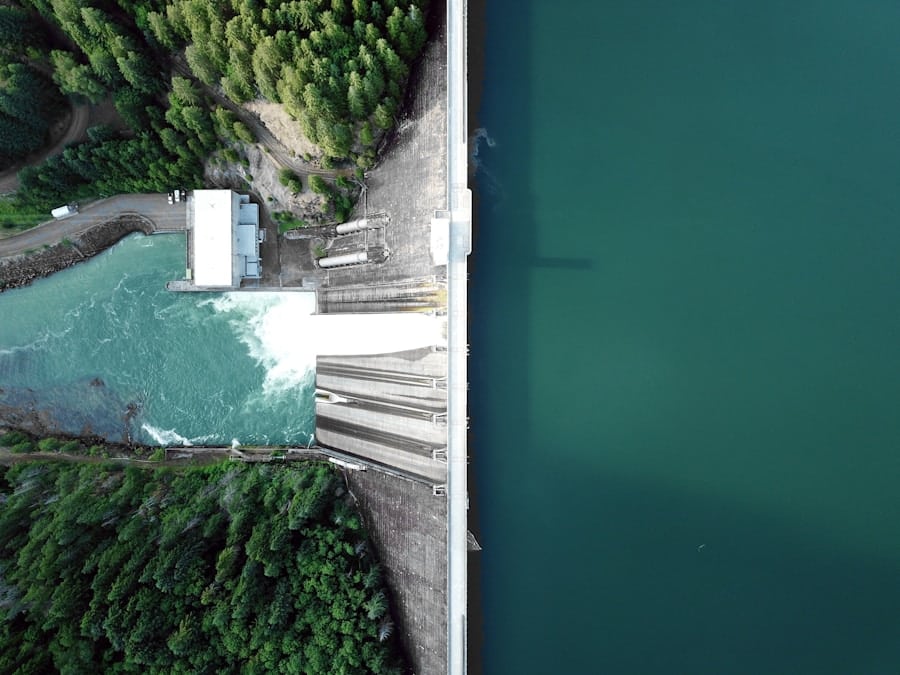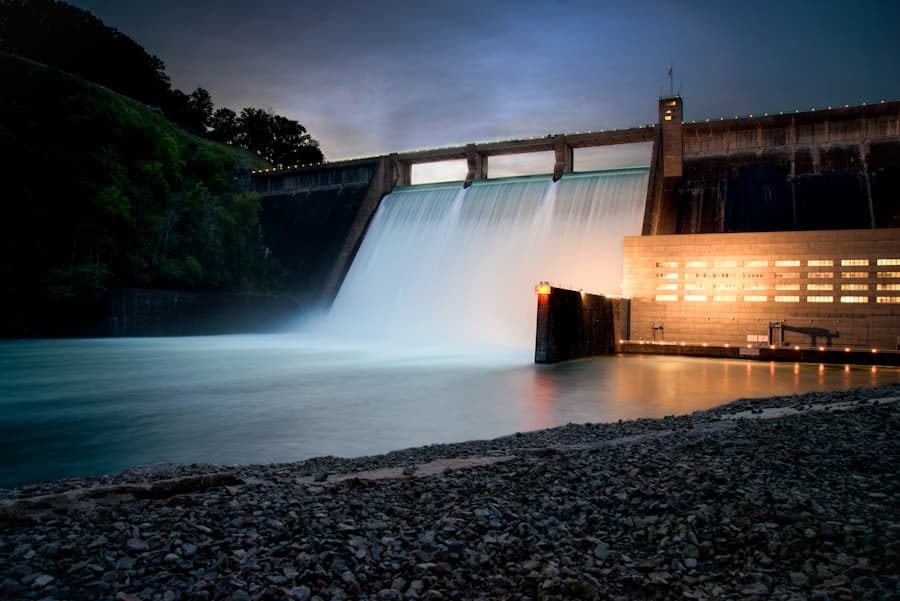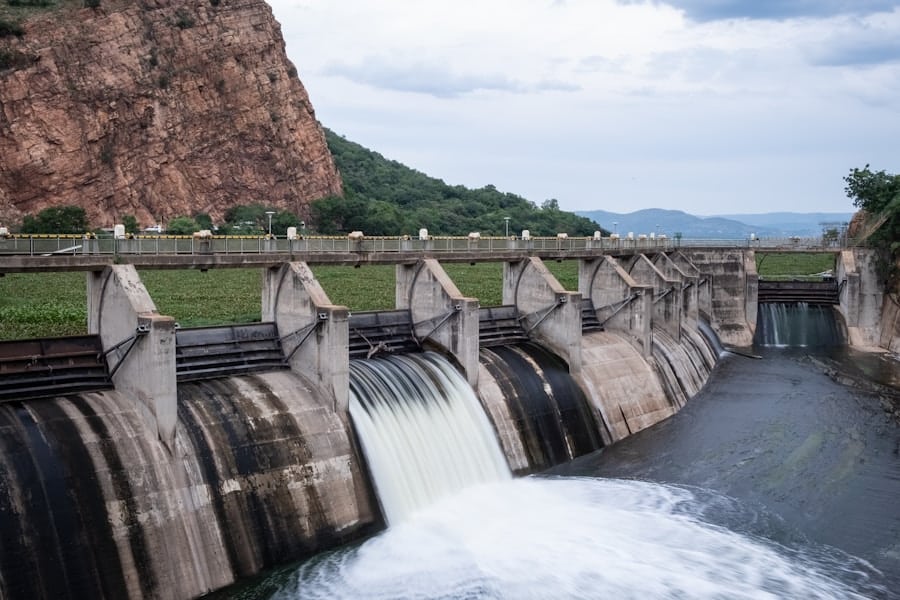The integration of artificial intelligence (AI) into various sectors has revolutionized traditional practices, and hydropower generation is no exception. As one of the oldest and most established forms of renewable energy, hydropower has long been recognized for its ability to provide a stable and reliable source of electricity. However, the advent of AI technologies has opened new avenues for enhancing the efficiency, reliability, and sustainability of hydropower systems.
By leveraging machine learning algorithms, predictive analytics, and real-time data processing, AI can significantly improve the operational capabilities of hydropower plants, leading to optimized energy production and reduced environmental impact. AI’s role in hydropower generation extends beyond mere automation; it encompasses a comprehensive approach to data analysis and decision-making. With the increasing complexity of energy demands and environmental regulations, hydropower operators are faced with the challenge of maximizing output while minimizing ecological disruption.
AI systems can analyze vast amounts of data from various sources, including weather patterns, water flow rates, and equipment performance metrics, to make informed decisions that enhance operational efficiency. This transformative potential positions AI as a critical player in the future of hydropower generation, promising not only improved energy production but also a more sustainable approach to harnessing water resources.
Key Takeaways
- AI is revolutionizing the hydropower generation industry by optimizing operations and improving efficiency.
- Current challenges in hydropower generation include environmental impact, aging infrastructure, and fluctuating energy demand.
- AI can optimize hydropower generation by predicting energy demand, improving maintenance schedules, and enhancing turbine performance.
- Case studies show successful AI implementation in hydropower plants, resulting in increased energy production and reduced operational costs.
- The advantages of AI in hydropower generation include increased energy efficiency, reduced maintenance costs, and improved environmental sustainability.
Current Challenges in Hydropower Generation
Despite its advantages, hydropower generation faces several challenges that can hinder its efficiency and sustainability. One significant issue is the variability in water availability due to climate change and seasonal fluctuations. Droughts can lead to reduced water flow in rivers, directly impacting the energy output of hydropower plants.
Conversely, excessive rainfall can cause flooding, which may damage infrastructure and disrupt operations. These unpredictable changes necessitate a more adaptive management approach to ensure that hydropower facilities can respond effectively to shifting environmental conditions. Another challenge lies in the aging infrastructure of many existing hydropower plants.
Many facilities were built decades ago and may not incorporate modern technologies or practices that enhance efficiency. Maintenance and upgrades can be costly and time-consuming, often leading to prolonged downtimes that affect energy production. Additionally, regulatory hurdles and public opposition related to environmental concerns can complicate the development of new hydropower projects.
These challenges underscore the need for innovative solutions that can optimize existing systems while addressing environmental impacts.
How AI Can Optimize Hydropower Generation

AI offers a suite of tools that can significantly enhance the operational efficiency of hydropower generation. One of the primary applications is predictive maintenance, where machine learning algorithms analyze historical data from equipment sensors to identify patterns that precede failures. By predicting when maintenance is needed, operators can schedule repairs during non-peak times, thereby minimizing downtime and ensuring continuous energy production.
This proactive approach not only extends the lifespan of equipment but also reduces operational costs associated with unexpected breakdowns. Moreover, AI can optimize water resource management by analyzing real-time data on water levels, flow rates, and weather forecasts. Advanced algorithms can predict future water availability based on historical trends and current conditions, allowing operators to make informed decisions about reservoir management and energy dispatch.
For instance, during periods of anticipated high demand, AI systems can recommend optimal water release strategies to maximize energy output while maintaining ecological balance. This capability is particularly crucial in regions where water resources are limited or subject to regulatory constraints.
Case Studies of AI Implementation in Hydropower Plants
Several hydropower plants around the world have begun to implement AI technologies with promising results. One notable example is the use of AI at the Grand Coulee Dam in Washington State, USThe facility has integrated machine learning algorithms to monitor turbine performance and predict maintenance needs. By analyzing vibration data from turbine components, the system can detect anomalies that may indicate wear or potential failure.
This predictive maintenance approach has led to a significant reduction in unplanned outages and has improved overall operational efficiency. Another compelling case is found in Norway’s hydropower sector, where AI-driven systems are being utilized for optimizing reservoir management. The Norwegian Water Resources and Energy Directorate (NVE) has developed an AI model that forecasts inflow to reservoirs based on meteorological data and historical inflow patterns.
This model enables operators to make data-driven decisions regarding water storage and release strategies, ultimately enhancing energy production while minimizing environmental impacts on local ecosystems. The success of these implementations demonstrates the tangible benefits that AI can bring to hydropower generation.
Advantages and Benefits of AI in Hydropower Generation
The advantages of integrating AI into hydropower generation are manifold. One of the most significant benefits is enhanced operational efficiency. By utilizing predictive analytics and real-time monitoring, operators can optimize their processes, leading to increased energy output without necessitating additional infrastructure investments.
This efficiency not only translates into higher revenues for operators but also contributes to a more stable energy supply for consumers. Furthermore, AI can facilitate better environmental stewardship by enabling more precise management of water resources. With advanced modeling capabilities, AI systems can help balance energy production with ecological considerations, ensuring that aquatic ecosystems are preserved while meeting energy demands.
This dual focus on efficiency and sustainability aligns with global efforts to transition towards cleaner energy sources and mitigate climate change impacts.
Potential Future Developments in AI for Hydropower Generation

Looking ahead, the potential for further advancements in AI applications within hydropower generation is vast. One area ripe for development is the integration of AI with Internet of Things (IoT) technologies. By equipping hydropower plants with smart sensors that continuously collect data on various operational parameters, AI systems could analyze this information in real-time to optimize performance dynamically.
Such integration could lead to fully autonomous operations where human intervention is minimized, allowing for rapid responses to changing conditions. Additionally, advancements in deep learning techniques could enhance predictive modeling capabilities even further. As more data becomes available from diverse sources—such as satellite imagery for monitoring watershed conditions—AI algorithms could become increasingly sophisticated in forecasting water availability and optimizing energy production strategies accordingly.
This evolution could lead to a paradigm shift in how hydropower plants operate, making them more resilient and adaptable to future challenges.
Ethical and Environmental Considerations of AI in Hydropower Generation
While the benefits of AI in hydropower generation are substantial, ethical and environmental considerations must also be addressed. The deployment of AI technologies raises questions about data privacy and security, particularly when sensitive information about water resources and infrastructure is involved. Ensuring that data is handled responsibly and transparently is crucial for maintaining public trust and compliance with regulatory frameworks.
Moreover, the environmental implications of AI-driven optimization must be carefully evaluated. While AI can enhance efficiency and reduce ecological impacts, there is a risk that increased energy production could lead to over-extraction of water resources or habitat disruption if not managed responsibly. It is essential for stakeholders—including policymakers, environmentalists, and industry leaders—to collaborate in establishing guidelines that ensure AI applications align with sustainable practices and protect local ecosystems.
The Role of AI in Shaping the Future of Hydropower Generation
As the world continues to grapple with the challenges posed by climate change and increasing energy demands, the role of AI in shaping the future of hydropower generation becomes increasingly critical. By optimizing operations, enhancing predictive maintenance capabilities, and facilitating better resource management, AI technologies hold the promise of transforming how we harness one of nature’s most abundant resources—water—for energy production. The successful implementation of AI in existing hydropower plants serves as a testament to its potential benefits while highlighting the need for ongoing innovation and collaboration among stakeholders.
By fostering a responsible approach to AI integration within hydropower generation, we can ensure that this renewable energy source continues to play a vital role in our transition towards a sustainable energy future. The synergy between AI advancements and hydropower generation not only enhances operational efficiency but also paves the way for a more resilient energy infrastructure capable of meeting the demands of tomorrow’s world.
In a related article discussing the top trends in digital marketing for 2023, experts explore the potential impact of artificial intelligence on various industries, including hydropower generation. As AI continues to advance, it is expected to play a crucial role in optimizing the efficiency and output of hydropower plants. To learn more about the latest developments in digital marketing and how they may influence the future of AI in hydropower generation, check out this article.
FAQs
What is AI?
AI, or artificial intelligence, refers to the simulation of human intelligence in machines that are programmed to think and act like humans. This includes tasks such as learning, problem-solving, and decision-making.
What is hydropower generation?
Hydropower generation is the process of converting the energy of flowing or falling water into electricity. This is typically done by using the kinetic energy of water to turn turbines, which then generate electricity.
How can AI optimize hydropower generation?
AI can optimize hydropower generation by analyzing large amounts of data to predict water flow, optimize turbine operations, and improve overall efficiency. AI can also help in predictive maintenance of hydropower equipment, leading to reduced downtime and increased reliability.
What are the benefits of using AI in hydropower generation?
Using AI in hydropower generation can lead to increased efficiency, reduced operational costs, and improved environmental sustainability. AI can also help in better managing water resources and mitigating the impact of climate change on hydropower generation.
What are the challenges of implementing AI in hydropower generation?
Challenges of implementing AI in hydropower generation include the need for high-quality data, the complexity of integrating AI systems with existing hydropower infrastructure, and the requirement for skilled personnel to develop and maintain AI systems. Additionally, there may be regulatory and ethical considerations to address when using AI in the energy sector.

